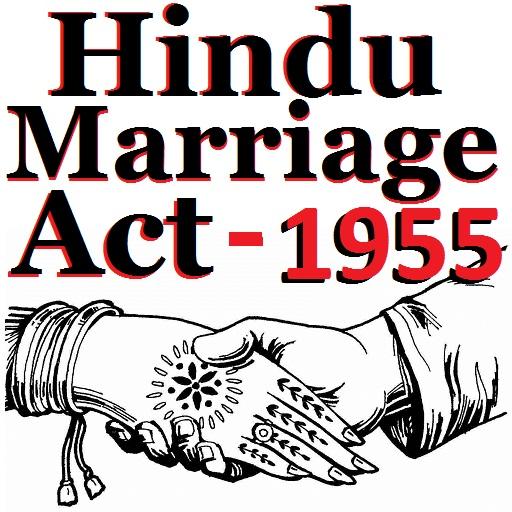Introduction
The Hindu Marriage Act, 1955, stands as a seminal legislation governing Hindu marriages in India, encompassing aspects from marriage validity to dissolution. Central to this Act is the provision of restitution of conjugal rights, a legal remedy aimed at fostering marital reconciliation. Recently, the Supreme Court of India rendered a significant ruling concerning the consequences of prolonged non-compliance with a decree for restitution of conjugal rights. This article explores the background, legal framework, and implications of this ruling within the context of Indian family law.
Background of the Hindu Marriage Act
Enacted in 1955, the Hindu Marriage Act applies to Hindus, Buddhists, Jains, and Sikhs, defining their rights and obligations regarding marriage. It codifies personal laws concerning marriage, divorce, adoption, guardianship, and succession among these communities. The Act provides a framework that balances traditional practices with modern legal principles, aiming to protect individual rights while preserving cultural and religious sensitivities.
Restitution of Conjugal Rights: Understanding Section 9
Section 9 of the Hindu Marriage Act pertains to restitution of conjugal rights, serving as a legal mechanism for spouses who wish to reconcile and continue their matrimonial relationship. The section stipulates that if one spouse withdraws from the company of the other without reasonable justification, the aggrieved spouse may petition the court for restitution of conjugal rights. The court, upon being satisfied with the merits of the case, may issue a decree directing the defaulting spouse to return to the matrimonial home and cohabit with the petitioner.
Legal Framework and Procedural Aspects
The process for seeking restitution of conjugal rights involves filing a petition in the appropriate family court, detailing the reasons for seeking reconciliation and the grounds for the withdrawal of conjugal rights by the defaulting spouse. The court then serves notice to the respondent (defaulting spouse), who has the opportunity to present their side of the case and contest the petition if deemed necessary.
Upon hearing both parties and considering the evidence presented, the court may issue a decree for restitution of conjugal rights if it finds the petitioner’s claims valid and justifiable under the provisions of the Hindu Marriage Act. This decree is legally binding and mandates the defaulting spouse to return to cohabitation within a specified timeframe.
Implications of Supreme Court Ruling
The recent Supreme Court ruling addresses the situation where the defaulting spouse fails to comply with the decree for restitution of conjugal rights for a prolonged period, specifically over one year. The Court ruled that such persistent non-compliance constitutes valid grounds for the aggrieved spouse to file a petition for divorce under the provisions of the Hindu Marriage Act.
This interpretation by the Supreme Court is crucial as it clarifies the consequences of prolonged separation despite a court order aimed at reconciliation. It underscores the sanctity of court decrees and ensures that legal remedies are available to spouses facing irretrievable breakdowns in their matrimonial relationships.
Judicial Precedents and Legal Interpretations
The Supreme Court’s decision builds upon established legal principles and judicial precedents concerning matrimonial disputes and the rights of spouses under the Hindu Marriage Act. Courts have historically recognized the delicate balance between preserving marriages and protecting the rights of individuals to seek dissolution when reconciliation efforts prove futile.
In several landmark cases, the judiciary has emphasized the importance of upholding the institution of marriage while recognizing the realities of modern relationships and individual autonomy. The Supreme Court’s role in interpreting and applying the provisions of the Hindu Marriage Act has been instrumental in shaping family law jurisprudence in India.
Challenges and Controversies
The issue of restitution of conjugal rights and its enforcement has sparked debates among legal scholars and practitioners. Critics argue that the provision may sometimes be misused as a tool for coercion rather than reconciliation, particularly in cases where marital breakdowns are irreparable. There have been calls for reforms to make the legal framework more responsive to evolving societal norms and individual freedoms while maintaining the integrity of marital institutions.
Social and Cultural Considerations
The Hindu Marriage Act operates within a cultural and social context that values the sanctity of marriage and family. While legal reforms have aimed to modernize aspects of family law, including divorce and marital disputes, cultural sensitivities and traditional values continue to influence judicial interpretations and societal expectations regarding marriage and divorce.
Conclusion
In conclusion, the Supreme Court’s ruling on the consequences of prolonged non-compliance with a decree for restitution of conjugal rights under the Hindu Marriage Act underscores the evolving nature of family law in India. It reaffirms the judiciary’s commitment to balancing the rights of individuals with the preservation of marital institutions. The ruling provides clarity on legal remedies available to spouses facing irreconcilable differences, ensuring that the law remains relevant and effective in addressing contemporary challenges in marital relationships.
Moving forward, ongoing discussions and debates surrounding matrimonial disputes and legal reforms will continue to shape the landscape of family law in India. As societal norms evolve and individual rights gain prominence, the Hindu Marriage Act will likely undergo further scrutiny and adaptation to meet the needs of a diverse and dynamic society.


